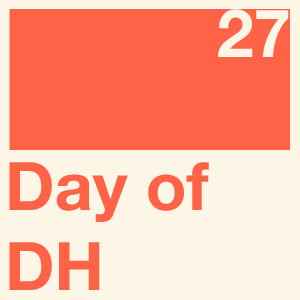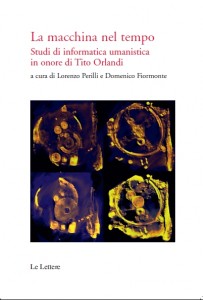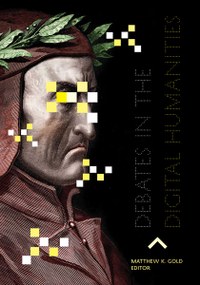Well the Day of Digital Humanities 2012 seems to have gone well. You can see all the activity here. Participants are still catching up with their posts and commenting on each other’s posts. This year we had over 300 participants (332 at last count) though many may not have filled in their blog or registered more than once.
A common concern is that the Day of DH could degenerate into navel gazing. Dan Cohen described the uncharitable possibility succinctly in his post What Is Day of DH? Charitable and Uncharitable Views:
24 hours of navel-gazing and obsessive self-recording by members of a relatively young, slightly insecure field that already spends too much time defining itself or arguing over the definition of digital humanities, even though they basically agree.
I’m obviously the last person anyone should ask about the Day of DH project as I’m part of the team that thought it up and runs it. I do, however, think Dan has put his finger on something important, and that is the youth of the field and the dangers/gifts of youth. Despite decades of humanities computing activities (I’ve been going to conferences since 1989), the field is just becoming a discipline and in this transformation we are likely to exhibit some of the enthusiasms of youth.
But first, Why do I say that we are young? While I believe we have been an interdisciplinary field since the journals in the 1960s and the conferences of the 1970s, I don’t think we became a discipline until we developed the graduate courses, projects, apprenticeships, and programs capable of reproducing practices. When did that happen? I could point to the Kings College London MA in Digital Humanities running in the 1990s, the courses, programs and department I helped develop at McMaster in the 1990s, or the University of Alberta’s MA in Humanities Computing developed by Susan Hockey before she left for UCL. Perhaps it was when the question of disciplinarity itself was debated over a year at the Institute for Advanced Technology in the Humanities at the University of Virginia in a symposium entitled, Is Humanities Computing an Academic Discipline? Sometimes asking the question is its own answer.
Or it could be the extraordinary experiment taking place right now in Ireland with their Structured PhD in a Digital Arts and Humanities. While the rest of us are still thinking and consulting about PhD programs, a network of Irish universities accepted 46 PhD students last year. While I knew about the proposal, only being here for a month and meeting the DAH students have I come to realize what an extraordinary venture this is. Very little seemed to be happening in Ireland before the Digital Humanities Observatory started in 2008, though that may just my impression. Now, four years later, you have a coordinated network of seven universities collaboratively running a PhD program with support from the government and the involvement of the DHO. Of course there are all sorts of wrinkles they have to work out (like the fact that the government funded the students, but not new faculty lines), but there is no denying that this PhD has changed the landscape. 46 students (along with the M. Phil students also admitted at some of the universities) are negotiating what the field is and with relatively little hard supervision. There is no canon, few experienced faculty, and no tradition as to what a PhD in Digital Arts and Humanities should be; so these students and their supervisors are working it out. That is youth! We have much to learn from what they do.
And such negotiation by new digital humanists is what I noticed reading the Day of DH 2012 feed. A cohort of new scholars comfortable with new media are using the Day of DH to have an unconference about what it is to do the digital humanities. I don’t think it is navel gazing; nor do I think it is a sign of insecurity. If anything there is a enthusiasm of being part of something. It is us older folk who are insecure about these new types of events that, frankly, we can’t control. We are also tired of defining the field, but that doesn’t mean that we should deny the pleasure of redefining it to others. The Day of Digital Humanities, like the discipline, is what youthful new scholars will make of it.
So then, what are some of the dangers and gifts of this disciplinary youth?


